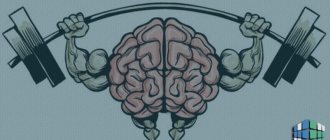Each person has an individual internal state consisting of emotions, feelings and thoughts. Based on these components, it reacts in one way or another to the influencing factors. Often, solving situations that arise requires the help of a qualified psychologist who can have a positive impact on the problem. In such situations, the advice of a psychologist for every day is especially useful.
Listen to your deepest desires and needs
The ability to listen and understand yourself comes with training. Direct your attentive and sensitive gaze within yourself. How does the body feel? What about the heart? What do you want most right now? While asking these questions, sit in front of the mirror. Probably the first desire will be superficial. A question that can help you dive into deeper levels is this question: “What’s good about this?” Let's say cupcake is the first thing that comes to your mind. What is the benefit of eating baked goods? You will probably be satisfied with yourself and find inner harmony. I wonder if there are other ways to achieve the same effect?
If your desire is devoid of frivolity and can be fulfilled without much effort or unpleasant consequences, be sure to do it. The main thing is not to overdo it. Do you feel lonely and dream of getting your ex-lover back? Fight for her or register on a dating site and find yourself a new partner. If you dream of something unrealistic, for example, you miss a deceased person or want to look ten years younger, then you can grieve. Sometimes you need to have a good cry to become happy again.
View on Instagram
Reminders, recommendations from a psychologist, consultation
What to do if your child has poor performance in the subjects he is studying:
Rule one: “don’t hit someone who’s down.” “D” is a sufficient punishment, and you should not punish twice for the same mistakes. The child has already received an assessment of his knowledge, and at home he expects calm help from his parents, and not new reproaches.
Rule two: “no more than one flaw per minute.” To rid your child of shortcomings, notice no more than one per minute. Know your limits. Otherwise, your child will simply “switch off”, stop responding to such speech, and become insensitive to your assessments. Of course, this is very difficult, but if possible, choose from the many shortcomings of the child the one that is especially intolerable for you now, which you want to eliminate first, and talk only about it. The rest will be overcome later or will simply turn out to be unimportant.
Rule three: “You’re chasing two hares...” Consult with your child and start by eliminating those learning difficulties that are most significant for him. Here you are more likely to meet understanding and unanimity. If both of you are primarily concerned about reading speed, do not require your child to express and retell at the same time.
Rule four: praise the performer, criticize the performance. The assessment must have an exact address. The child usually believes that his entire personality is being evaluated. It is in your power to help him separate the assessment of his personality from the assessment of his work. Praise should be addressed to the individual. A positive assessment should refer to a person who has become a little more knowledgeable and skillful. If, thanks to your praise, the child begins to respect himself for these qualities, then you will lay another important foundation for the desire to learn. But with such personal praise, criticism should be as impersonal as possible: “Such problems must be solved not in one action, but in two.” This form of negative assessments stimulates the correction of mistakes, but does not negatively affect the child’s attitude to knowledge or his belief in success.
Rule five: the assessment should compare the child’s today’s successes with his own yesterday’s failures. There is no need to compare a child’s achievements with state assessment standards or with the successes of neighbor Sasha. After all, even the smallest success of a child is real success, victory over oneself, and it should be noticed and appreciated.
Rule six: do not skimp on praise. There is no loser for whom there is nothing to praise. Select a tiny island, a straw of success, from the stream of failures, and the child will have a springboard from which to attack ignorance and inability. After all, parental: “I didn’t, I didn’t try, I didn’t teach” give rise to an echo: “I don’t want, I can’t, I won’t!”
Rule seven: assessment safety technique. Child labor must be assessed in a very granular and differentiated manner. A global assessment, which combines the fruits of very different efforts of the child - the correctness of calculations, the ability to solve problems of a certain type, and literacy in writing, and the appearance of the work, is not suitable here. With differentiated assessment, the child has neither the illusion of complete success nor the feeling of complete failure. The most practical motivation for teaching arises: “I don’t know yet, but I can and I want to know.”
Rule eight: set extremely specific and realistic goals for your child. Then he will try to reach them. Do not tempt your child with impossible goals, do not push him onto the path of deliberate lies. If he made nine mistakes in the dictation, do not make him promise to try to write without mistakes next time. Agree that there will be no more than seven, and rejoice with your child if this is achieved.
Rule nine: the child should not be an object, but a participant in the assessment. The child should be taught to independently evaluate his achievements. The ability to evaluate oneself is a necessary component of the ability to learn - the main means of overcoming educational difficulties. Start teaching self-esteem by differentiating it. The self-esteem of a child raised on the principles of painless (differentiated) assessment will make him relatively protected from the severe imperfections of the school marking system. The beauty, speed of completion, errors due to “inattention” and errors due to “rules” and the fact that the child sat down for lessons on time and without reminders deserve special mention.
Rule ten: the assessment must be expressed in some visible signs. It is very important that the assessment is expressed not only in words, but is materialized in some visible signs. To do this, use “rulers”, graphs, tables, etc., which will help you visually compare the child’s yesterday’s and today’s achievements.
Recommendations for parents on preparing homework
1. Of particular importance is a firmly established start time for classes. Thanks to this, a habit is developed, at the appointed time a psychological readiness and predisposition to mental work appears, and even interest in playing or walking is lost.
When setting the start time for classes, it is necessary to determine a reasonable balance of time allocated for lessons, walks, and household chores, so that one does not come at the expense of the other.
2. You need a permanent place to study, where all the necessary items are at hand. This is how the habit of internal mobilization is developed from the moment classes begin and until the ability to manage one’s behavior has been developed, the workplace should only be a place for studying (no games, no pictures, no toys, no extraneous books, no colored pencils and markers , if they are not needed for the current job).
If it is not possible to allocate a permanent separate place, then at a certain hour a place must be unconditionally allocated and freed up for classes.
3. An important rule is to start work immediately. The longer you delay starting work, the more effort you will need to force yourself to start it. For a person who systematically begins work without delay, the period of “getting involved” in work is short, things go faster and more efficiently, and study becomes a source of not only hard work, but also a source of satisfaction.
4. Work breaks are necessary. We need unity of school and home learning regimes and prevention of overload.
5. Work should proceed at a good pace - from 1 hour in second grade to 4-5 hours for high school students.
6. It is impossible for a schoolchild not to have other responsibilities besides studying: a person who has to do a lot of things during the day gets used to valuing time, planning work, and starting it without delay.
Accustoming your child to the correct regime should be combined with your self-discipline, respect for the child, goodwill, interest, and reasonable demands.
Parents about punishments
By spanking a child, you teach him to fear you.
By showing the worst traits of your character in front of your children, you are setting a bad example for them.
Corporal punishment requires less intelligence and ability from parents than any other educational measures.
Spanking can only confirm, but not change, a child's behavior.
If you spank a child “in the heat of the moment,” this means that you have less self-control than you require from your child.
The goal of disciplinary techniques is to change the child’s desires, not just his behavior.
Very often, punishment does not correct behavior, but only transforms it.
Punishments make the child fear losing parental love. He feels rejected and begins to be jealous of his brother or sister, and sometimes even of his parents.
A punished child may develop hostile feelings towards his parents. And as soon as two feelings unite in him - love and hatred - a conflict immediately arises.
Frequent punishment encourages the child to remain infantile.
Punishment can force a child to get the parents' attention by any means necessary.
You cannot punish a child under 2.5-3 years old.
What to replace punishments with?
Patience. This is the greatest virtue a parent can have.
An explanation. Explain to your child why his behavior is wrong, but be as brief as possible.
Distraction. Try to offer your child something more attractive than what he wants. Slowness. Do not rush to punish your son or daughter - wait until the action is repeated.
Awards. After all, they are more effective than punishment.
What needs to be taught to a child?
Love yourself. Self-love is the most fundamental and essential of all abilities. Until a child values his own life, he will not become active, which means he will not be able to realize himself.
Interpret behavior. A child finds himself in various life situations in which he may simply become confused. If a child has learned to understand and explain people's behavior, he will not be inclined to get upset in such situations. For example, the teacher yelled at him. He may think that she lost her nerves today, she is very tired, there are a lot of naughty people in the class who bother her.
The child must be taught to explain his own behavior. He will be able to explain how he behaved in class, whether it was good or bad, why it happened to him and how he felt. Then he will be better able to understand what they want from him, what he is doing wrong and why this happens to him.
Communicate using words. A child who can explain what is happening to him in words helps others better understand himself and thereby relieves many problems and troubles. So, as it seems to the teacher, he became stubborn, did not answer and did nothing all day. The teacher will not feel this way if the child simply says that at first he was very scared because he was never asked first, and then he was upset that he was given a bad mark, and the whole day he was so upset that he knew the poem and did not answer what he wanted cry.
Understand the differences between thoughts and actions. A child cannot feel one thing, think about another, and act in a third. He has childlike, clean communication. If he is worried about something, we need to teach him to talk about his feelings, and not translate them into constant thoughts that he is afraid or embarrassed about. Then his mental pain goes away, and the child’s consciousness can perceive an educational or other task that he puts into action. Therefore, it is recommended to help the child react to his negative emotions through a story, game, dramatization, drawing, pantomime: “Draw, show, tell, play out what is bothering you now, and then we will start doing homework with you!”
Be interested and ask questions. All the talk about preparing children for school, interest in learning, and cognitive abilities will turn out to be unnecessary if we stop being interested in and responding to the wonderful questions that children ask themselves and those around them: “Why doesn’t the sun fall from the sky?”, “Why doesn’t fish drown in water?” water?”, “Why do people age?”...
If we want to support the instinct of curiosity, we must make sure that by the age of five the child is enjoying his questions and knows that there are ways to find answers to them. Children need to be taught to find answers to questions themselves, to help search and find them.
Understand that there are no simple answers to complex questions. The child will face serious issues, social and scientific problems in life. There is no need to constantly tell him: “You’re still small,” “It’s none of your business,” “When you grow up, you’ll understand.” You can lift the veil and show that not all questions have clear answers. By doing this, we will develop the child’s stereoscopic, global, and not just black-and-white thinking.
Don't be afraid of failure. To learn anything, a child should not be afraid of mistakes and failures. Children need to be helped to understand that they can learn from mistakes. Moreover, children should not be humiliated and punished for this. A child who is afraid of mistakes and failures will grow up to be an insecure person, a real loser.
Trust adults. A child needs to trust adults, but trust is destroyed if parents, to please the child, constantly play different games with him and deceive him: “Eat porridge, you will become big,” “Mom always tells the truth,” “Dad is the strongest and bravest.”
Sometimes parents think that the child will not trust them if he finds out about their weaknesses. We will not violate a child's trust if we acknowledge human imperfection.
Think for yourself. A sense of one's uniqueness and ability to choose is a vital part of human existence. This ability is easy to teach if you simply encourage the child to express his judgment without fear of being punished or laughed at. None of us wants to raise a person who is weak in spirit or weak in intelligence. We want our children to make big decisions, have common sense, and have their own convictions. To do this, you do not have to wait until the child graduates from school or becomes an adult. We must demonstrate our respect for the child’s personality today.
Know what you can rely on an adult for. By the age of five, a child should know that there are many situations that he cannot cope with. He cannot cope with the company of older children, with the wild behavior of the group and many other cases. We need to explain to children that adults and parents can be a child’s true friends, who come to the rescue in difficult times, who can understand them and respect their rights.
How to keep your child healthy
Dear fathers and mothers! Our children are the most precious thing in our lives, in order to make them happy, help them maintain their health. Try to make sure that in your family physical education and sports become an integral part of joint leisure time.
· From early childhood, instill in your children the habit of physical education and sports!
· Respect your child’s sporting interests and passions!
· Support the desire to participate in class and school sporting events!
· Participate in class and school sports events, this helps strengthen your authority in the eyes of your own child!
· Cultivate in your children respect for people involved in sports!
· Tell us about your sports achievements in childhood and youth!
· Give your children sports equipment and accessories!
· Demonstrate your example of physical education and sports!
· Take your child for walks in the fresh air as a family, hikes and excursions!
· Rejoice at the success of your child and his friends in sports!
· Place awards for your child's sporting achievements in a prominent place in the house!
· Support your child in case of failures, strengthen his will and character!
How to become good parents to your children
· In order for your child to grow up to be a healthy, happy and confident person, you must answer the following question: Will what I want for him always be good for him?
· Be extremely frank with your child on all issues of his present and future, do not paint him rosy horizons that may not come true.
· Make sure your child knows what you want from him.
· From early childhood, teach your child to understand the words “can”, “cannot”, “must”.
· Remember! The child must understand very early that there are things that absolutely cannot be done, because this will be followed by mandatory punishment.
· Talk about yourself, your childhood, your desires and interests, plans and actions, what worked and what didn’t work.
· Tell the truth about yourself, don’t paint yourself with rosy colors.
· Develop in your child responsibility for his deeds and actions, do not shift them onto the shoulders of others.
· Let your child understand that you need him, that he is not a burden, but a joy, no matter how difficult it is financially and morally in your life.
Difficulties in adapting fifth graders to school. Recommendations for parents
· The first condition for a fifth-grader’s school success is unconditional acceptance of the child, despite the failures that he has already encountered or may encounter.
· It is mandatory for parents to show interest in the school, the class in which the child is studying, and every school day he or she lives. Informal communication with your child after the last school day.
· Mandatory acquaintance with his classmates and the opportunity for children to communicate after school.
· Inadmissibility of physical measures of influence, intimidation, criticism of the child, especially in the presence of other people (grandparents, peers).
· Elimination of such punishments as deprivation of pleasure, physical and mental punishment.
· Taking into account the child’s temperament during the period of adaptation to school education. Slow and uncommunicative children have a much harder time getting used to the classroom and quickly lose interest in it if they feel violence, sarcasm and cruelty from adults and peers.
· Providing the child with independence in educational work and organizing reasonable control over his educational activities.
· Encouraging the child, and not only for academic success. Moral stimulation of the child's achievements.
· Development of self-control, self-esteem and self-sufficiency of the child.
· The need to change the child’s educational activities at home, creating conditions for children’s physical activity between doing homework.
· Observation of parents for the correct posture during home activities, the correct lighting conditions.
· Prevention of myopia, curvature of the spine, training of small muscles of the hands.
· Mandatory introduction of vitamin preparations, fruits and vegetables into the child’s diet. Organization of proper nutrition.
· Parents' concern for the child's hardening, maximum development of motor activity, creation of a sports corner in the house, purchase of sports equipment: jump ropes, dumbbells, etc.
· Active participation of family members in the development of the child’s physical activity.
· Fostering child independence and responsibility as the main conditions for maintaining health.
Recommendations for parents of teenagers
1. Interest and help. Parental support generates trusting relationships between children and parents and entails high self-esteem in adolescents, promotes academic success and moral development. Insufficient parental support, on the contrary, can lead to a child’s low self-esteem, poor academic performance, impulsive actions, poor social adaptation, unstable and antisocial behavior.
2. Parents' ability to listen, understand and empathize. The parents' inability to empathize, their lack of emotional sensitivity and understanding of the child's thoughts and feelings can lead to the development of indifference in the child. Respect for a teenager and communication between parents and him/her contribute to the establishment of harmonious relationships in the family.
3. Parents' love and positive emotions in family relationships are associated with intimacy, affection, love, receptivity; family members show mutual interest and responsiveness. If negative emotions predominate in the family, then coldness, hostility, and rejection are observed, which can lead either to the predominance of the child’s need for love (in adulthood), or to the formation of isolation, coldness, and inability to express his love for loved ones, including to children.
4. Recognition and approval from parents.
5. Trust in the child. Mistrust of children usually indicates that parents are projecting their own fears, anxieties, or feelings of guilt onto them. Parents who are insecure (or who have experienced certain difficulties in the past) are more likely than others to fear for their children.
6. Treating the child as an independent and adult person. A teenager’s achievement of independence occurs in the process of individualization, when he is engaged in the formation of his own individuality and at the same time establishes new connections with his parents. The teenager tries to change his relationship with his parents, while trying to maintain the same communication, affection and trust. In order to demonstrate their own individuality, adolescents are guided by a different value system than their parents, they set themselves different goals, different interests and different points of view.
7. Guidance from parents. The most functional families are those where parents demonstrate flexibility, adaptability and tolerance in their attitudes and behavior. Parents who are not flexible in raising teenagers refuse to reconsider their views and change their point of view; they are intolerant, overly demanding, always critical and place unjustified expectations on children that are not appropriate for their age. This has a detrimental effect on the teenager’s self-esteem, suppresses the development of his personality, which ultimately leads to stressful situations in the relationship between parents and children.
8. Personal example of parents: the ability to set a good example for others to follow; follow the same principles that children are taught. Since the process of identification in adolescents partly takes place in the family, those of them who are proud of their parents, as a rule, feel quite comfortable in the world around them.
9. Close cooperation with the school. If something worries you about your child’s behavior, try to meet and discuss it with the class teacher or specialists (educational psychologist, social pedagogue) as soon as possible.
10. Be interested in who your child communicates with.
Remember: the main helpers of parents in difficult situations are patience, attention and understanding.
Memo “The functions of parents in organizing a child’s successful education”
1.Keep your child calm. When he wakes up, he should see your smile and hear your gentle voice.
2. Don’t rush your child in the morning, don’t bother him over trifles, don’t rush, the ability to calculate time is your task.
3.Do not send your child to school without breakfast.
4. Never say goodbye by warning about something. Wish your child good luck and encourage him.
5.Forget the phrase “What did you get today?” Meet the child calmly, without questions, let him relax.
6. If the child is overly excited and wants to share with you, don’t brush it off, don’t put it off for later, it won’t take much time.
7. If you see that a child is upset, but is silent, do not question him, he will then tell everything himself.
8.After listening to the teacher’s comments, do not rush to give a beating. Try to keep your conversation without the child. Listening to both sides will help you understand the situation more clearly.
9. After school, do not rush your child to sit down for homework - you need 2-3 hours of rest (1.5 hours of sleep).
10. While preparing lessons, do not sit “over your head.” Give your child the opportunity to work on his own.
11. Find at least half an hour during the day when you will belong only to your child! Don't be distracted by household chores, TV, etc. At this moment, his affairs and concerns should be important to you.
12. Develop a uniform tactic for communication between all family members and the child. Resolve your differences without your child.
13.Remember that during the school year there are critical periods when studying is more difficult and fatigue sets in faster - these are the first four weeks, the end of the second quarter, the first week after winter break, the middle of the third quarter.
14. Be attentive to your child’s complaints of headaches, fatigue, and poor health—these are indicators of learning difficulties!
15. Even very “big” children really love a bedtime story, a song, and affectionate stroking. It calms you down, helps relieve stress, and helps you fall asleep peacefully.
16.You can express your dissatisfaction with individual actions of the child, but not with the child himself.
17.You can condemn a child’s actions, but not his feelings, no matter how unwanted or inappropriate they may be.
18. Dissatisfaction with the child’s actions should not be systematic, otherwise it will turn into rejection of him.
19. Show your child that you respect him. Only spoken compliments help, not what you may be thinking but not saying.
20. Acknowledge the child here and now, based on real events.
21.Keep a friendly tone!
Enjoy life - advice from a psychologist
The following advice from psychologists can help cope with this condition:
- start smiling more often;
- go in for sports;
- update your image periodically;
- fantasize and dream more often;
- try to find positivity even in small things;
- start traveling;
- bring goodness to the world around you.
How to become more sociable
To cope with this problem and behave more relaxed, most psychologists advise:
- To avoid constant hitches in your speech, you should not analyze each phrase for a long time. Even if your statement is not perfect, you will still be understood;
- do not take the critical remarks of your interlocutors to heart, this is just a conversation;
- find pleasant and positive aspects in every conversation;
- Be the first to start a conversation more often;
- make more new acquaintances.
How to treat yourself and people or practical psychology for every day
Most people, when they find themselves in an unfamiliar company, behave constrained and downtrodden. It's all about the internal fear of being judged. In this case, the “Psychology Practical Advice” section will help.
- Don't take criticism seriously, it can be confusing.
- It’s better to say the first thing that comes to mind, rather than analyze your speech. When hesitating, it may seem that the person does not want to participate in the conversation.
- Everywhere you need to find positive aspects and focus your attention on them.
- It doesn't hurt to become an initiator of new topics.
- New acquaintances are the main key to developing communication skills.
There is no need to constrain yourself with fear of communicating with people. All human life is built on relationships, which means we cannot do without socialization skills.
IMPORTANT! Informational article! Before use, you should consult a specialist.
How to learn to enjoy life: advice from a psychologist
Not everyone is able to enjoy what is happening around them, because this is often prevented by poor condition, a feeling of fatigue, depression or resentment. Often in such states, the world around us becomes boring, uninteresting and gray. To prevent this from happening, you need to take into account a number of psychological tips:
- smile more often;
- play sports;
- update yourself (haircut, coloring, shopping);
- dream;
- look for the positive in small things, travel;
- bring goodness to those around you.
These easy-to-follow tips from psychologists will help you move from a negative point and bring joy and positivity into your life. If nothing helps, don’t hesitate and contact a specialist, for example, psychologist Nikita Valerievich Baturin.
Attachment can be insecure
What is dangerous attachment? The heartfelt affection of two people for each other looks idyllic from the outside, but in reality it can be selfish, demanding, on the verge of emotional terror. And then this attachment becomes burdensome for both parties, doesn't it?
Elena Stankovskaya: This is one of the options for what is an insecure attachment. Most often, this is due to an anxious type of attachment. This is when I feel that I cannot survive without another, and therefore I allow him to abuse me. There are also mutually destructive relationships where partners cause a lot of pain to each other, experiment with each other's boundaries and destroy intimacy. This suggests that a secure attachment has not been formed. But if it exists, then close relationships are always beneficial. They relieve many psychological problems. In addition, there is an “avoidant” type of attachment, when people avoid relationships and live alone. And they try not to allow another to be significant to them. Some people feel fine, while others develop symptoms of anxiety and depression. Even if you are an avoidantly attached person, what you really need is attachment. You need a relationship, you need someone to whom you will tell about how you don’t need a relationship.
Useful psychology for stress resistance
Every person is subject to negative influences, so there is no one who is absolutely stress-resistant. Some people are so affected by their problems that it is difficult for them to continue their lives at their usual pace. However, once you start, the result will not be long in coming, and psychological tips will help with this:
- It's best to always listen to your body. Observing his behavior in stressful situations will help in the future to avoid disruptions in normal functioning.
- Vitamin D will help you deal with difficult life moments more easily.
- Forgiveness is the key to peace. You should not hold a grudge, even if it is very strong.
- Sport is an excellent cure for stress. Physical activity is a distraction and provides overall benefits to the body.
- It is recommended to replace spending time with gadgets with spending time listening to calm music or meditation. This will help you come to harmony with yourself.
The above psychological tips for every day will help you withstand the hardest blows of life with dignity.
Close relationships are essential for a happy life.
You have a lecture called “Why We Need Intimate Relationships.” The word “why” seems redundant here. Well, what do you mean - why? Isn't it clear?
Elena Stankovskaya: In principle, of course, it’s clear. Close relationships are necessary for a happy life. To maintain peace in the family. To jointly resolve everyday issues. For raising children. Yes, at least for status. And one of the main reasons why modern people enter into these relationships is the desire for unity, the desire to be emotionally significant to each other. It is difficult to become yourself without a close relationship with someone. It is known that babies do not develop if you do not look at them, do not touch them, and do not talk to them.
In your opinion, close relationships are relationships between whom?
Elena Stankovskaya: In my lectures I reveal this in different ways. There are close romantic relationships. There are close relationships in a broader sense. This is friendship, mutual affection. This is the desire to share the pain, anxiety, and experiences of another person. This is also the fear of separation. Intimacy is also interpreted by psychologists as a joint willingness to take risks: to be vulnerable, to show oneself and to withstand conflicts. But unlike love, intimacy is always mutual.
Someone may or may not have a close relationship with someone else. How can a psychologist help here? Isn't his role exaggerated?
Elena Stankovskaya: If people want to find close relationships and are ready to work with a psychologist for this, then a lot can be achieved here. Firstly, people sometimes don’t really understand what kind of relationship they want. And then it’s useful to talk to them about it.
People sometimes don't really understand what kind of relationship they want. And then it’s useful to talk to them about it
Secondly, there are barriers: psychic expectations from relationships and methods of interaction that once helped to adapt to the environment, but now interfere with building happy connections. Most often a person is not aware of these methods, but falls into their traps. For example, anxiety that a loved one will soon disappear somewhere will disappear from your life, which forces you to “cling” to contact. Or a deep-seated belief that nothing good will come out of the relationship, and it is better to avoid it. In this case, there is little chance that affection will arise between you. This important concept is attachment. It was proposed by the English psychologist John Bowlby. He described attachment as “an enduring psychological connection between people.” Children, Bowlby explained, have a need not only for their parents to feed them, but also for mom and dad to be a safe “base” from which to explore the world. Children need these relationships so that their curiosity, their interest in exploration, can be realized. Bowlby and his students identified different types of attachment. For example, secure attachment. It is most favorable for building close relationships. It's the feeling that your loved one will meet most of your needs most of the time. Subsequently, researchers showed that the attachment mechanism also plays a key role in building close relationships in adults.
Techniques of psychological influence
Arrogant man
You can make someone feel uncomfortable if you look at their hairline while talking.
This trick will help put your interlocutor in his place when necessary.
Sympathy
When you are in a group of people and someone tells a joke, watch who is looking at whom. In such a situation, we tend to instinctively look at the person. whichever we are closest to or like.
Ask for a favor
Do you want the person to like you more? Ask him to do something for you. It is known that the people you provide a service to like you more.
This works because the brain tries to rationalize: since the person did you a favor, he likes you.
Call me by another name
Do you want a person to treat you a certain way? You can help this happen by naming it a certain way.
For example, if you want a person to be friendly with you, call him by a name that he likes. If you want a purely professional relationship between you, you can call the person by his title.
Don't correct people
When a person is wrong, remain silent. It usually doesn't matter, and by correcting it you create an atmosphere of negativity and a bad impression. But if the situation requires you to speak up, start questioning them about their response.
remember me
Our memories are fickle. We tend to remember the beginning and end of something, while the middle remains blurry.
Try not to be in the middle to make an impression. When you meet a new person, be the first or the last. The same can be applied to interviews.
If you're going on a date, try to choose the beginning or end of the day. And when on a date, try to make an impression at the beginning or end of the date.
Make you believe
If you want a person to believe you when you're lying, try to add as many details as possible.
Disagreement
Research has shown that when the other person disagrees with you, you need to speak faster so that the person has less time to process what you say.
How to obtain consent
People who experience fear and then a sense of relief tend to then respond positively to requests. For example, people who heard an invisible police officer whistle while crossing the street were more likely to respond to a survey than those who heard nothing.
Profitable proposition
During negotiations, focus on your interlocutor and what he will get after he closes the deal. For example, if you want to sell a car, you might say "I'm giving you our car for $10,000" instead of "I want $10,000 for this car."
How to behave at a new job
Difficulties in communication when applying for a job do not always arise and not everywhere. This depends on the microclimate of the small group of the team and the personal qualities of each (character, sociability, tact). It is not necessary that you will be greeted unkindly in the new team, but in order to be prepared for any outcome of events, take on board the advice of a psychologist:
- on the day of the interview, pay attention to the external characteristics of the team (age group, style of dressing, form of communication);
- when getting ready for work on your first working day, be sure to use the knowledge you have acquired about the team (clothing, behavior, manner of speaking), try to bring your image and appearance in accordance with the given situation;
- try to listen carefully to your colleague (this will leave a good impression of you and will help in further communication);
- speak a little and to the point (at the beginning of your working life, the basis for the status of re-entering work is laid, therefore, if you don’t know something, or are unsure of the answer, it is better to remain silent or ask);
- to establish quick contact, a simple action will help, for example, asking a simple question to colleagues (human nature is such that it feels pleasure from the realization that it can be useful), but let the requests be simple, uncomplicated, and quickly fulfilled;
- the ability to tactfully maintain a conversation will add another plus to your image;
- in any tense situation, do not rush to extremes, a conflict situation can be eliminated in the bud, without leading to an open form of confrontation, you just need an open dialogue and solving the problem through joint efforts;
The prevailing opinion that people are greeted by their clothes is still relevant today, but no less important is how correct and tactful your behavior will be.
An example of what not to do: wear bright makeup, use a provocative style of clothing, use a rude, impudent manner of behavior.
Why do children behave aggressively?
Children are more susceptible to any changes and stress in the family, so parents should not be surprised that the level of activity and aggression in children exceeds the usual norm.
If parental behavior exhibits stress, anxiety, and aggression, this will also manifest in children's behavior. In most cases, a cluttered home is the result of parental behavior. One of the best ways to relieve stress is to play with your child. Teach children to interact as a team: for example, play games (board games, cards, etc.): a team of children against a team of parents. Children will love it and will start cooperating instead of fighting.
Don't try to replicate school in its entirety at home. Places for school and work should be separate. Protect your child from excessive news, which can cause anxiety and, as a result, aggressive behavior.
What tips are useful?
What advice can a psychologist give you? In order to answer this question simply and clearly, a psychologist can be compared to a personal fitness trainer. Can a trainer pump up your abs for you? Definitely not. Can a trainer create a training program and nutrition system? – Yes, that’s exactly what we expect from him. The situation with the psychologist is very similar. A psychologist will not be able to make peace for you with your significant other, improve relationships with your parents, or solve your problems at work. However, he should show you how you can learn it. The coach analogy can be developed further. Good trainers don't force their clients into continuous personal training. They develop a program for a certain period, adjust the technique of performing the exercises and “let the client go free swimming” until the end of this period, for example, until certain target indicators are achieved. Naturally, in the process, the trainer gives the client a lot of advice regarding the details of the training, but, we repeat, the client trains himself. The psychologist can also give the client “exercises,” correct their performance, provide tasks for “home” study, and discuss their results. But the client, of course, has to perform these exercises on his own.
Doctor, give me a psychological pill!
The same pill logic works in the case of psychological advice. For example, a person is stuck in a bad mood for several days, and then immediately diagnoses himself: “I have depression!” Then he runs to a psychologist with a request to prescribe a pill. And when he finds out that the psychologist is not a doctor, and he does not prescribe pills, he asks to recommend something similar to pills. For example, some magical way to easily and quickly improve your mood. This is essentially a request for specific advice. With the hope that the specialist will suggest the “best remedy” that will definitely help.
Should a psychologist give specific advice?
Almost all modern books on popular psychology are collections of psychological advice. Sometimes these tips are scattered, sometimes they are combined into training programs, proprietary trainings. But in any case, these are tough algorithms.
The most popular psychologists in the media (on television talk shows, on YouTube, on Instagram), who gather audiences of thousands, also give advice. Usually these are some “rules for a happy life”, formulated in the form of brief recommendations, of which there are no more than a dozen. These recommendations themselves are simple and obvious (“I thought so myself, only here it’s better formulated”), and therefore are accepted without criticism.
But uncritical perception is suggestion (suggestion), and this is a direct path for manipulation and abuse. Almost all modern methods of brainwashing (propaganda, destructive cults, etc.) are based on the trusting assimilation of “simple truths” and behavioral rules.
That is why it is extremely difficult to understand: before us is a truly competent professional psychologist (forced to give specific recommendations in the media, because these are the requirements of the format) or another “teacher of life”, in addition to the “great truths” spoken, who does not have deep knowledge and is not restrained by professional ethics .
Recommendations for eliminating symptoms of burnout
I will continue to analyze the problem using the example of diagnosing a teacher from our example above, but I want to note that these same recommendations apply to all human-to-human professions. The difference is which symptoms have already made themselves felt and which constitute a risk group. Therefore, recommendations are always individual in nature, although they have a common essence: self-regulation, normalization of the daily routine, reassessment of life, elimination of the influence of leading negative factors.
Set long-term and short-term goals for your activities
This is important for maintaining motivation, self-education, feedback (awareness of the right path, self-satisfaction). Communicate, share your positive and negative emotions. It is very useful to be able to adequately and calmly discuss all experiences and disagreements.
Together we come to the optimal solution, listen and understand all sides. Take charge of your time and prioritization. Try to devote maximum time to things that bring you positive emotions. Learn self-regulation techniques, especially relaxation and attention shifting techniques. Provide yourself with a group of like-minded people, those who will support your point of view and positive attitude towards work. Learn to skillfully spend your resources and redistribute the load. Avoid the same type of activity, be sure to find a hobby you like. Alternate mental and physical activity. Let your body rest and recover. Master the skills of conflict-free communication and getting out of conflict situations. Build adequate self-perception and self-awareness. There is no need to try to be better than everyone else, it is important to be better than yourself. Focus on your breathing. If you notice a delay, it means you have entered a dangerous zone; tactfully get out of contact. Work on developing adequate egoism. Every day, set aside an hour (or at least 20 minutes) for yourself, exclusively for your interests and needs. Remind yourself of who you are. This is one of the options for self-hypnosis. Clearly say out loud: “I, full name, and I am a teacher.” Awaken new emotions in yourself, do something you’ve never done (useful and interesting, and not the other way around). For example, learn a couple of dance moves and diversify your exercises. Finally, take time off to recover or ask for a reduction in workload. If these methods do not help, contact a psychologist for individual psychotherapy.
Voltage phase
During the tension phase, it is necessary to work with self-acceptance of the individual and non-judgmental perception of other people. This will reduce the stress level of close communication and will allow you to understand your own resources, avoid excessive emotional involvement in the interaction process (which will allow you to rationally distribute resources in a problem situation). In addition, you need:
- recognize the right to experience positive and negative emotions;
- reduce reflection by abandoning the attitude “I must be the best”;
- develop cognitive abilities (this will open up new opportunities for compensation of emotions);
- work on the temporal integrity of the perception of one’s “I” (past, present, future), and preserve this thread both in real plans and in fantasies;
- do time management;
- learn self-regulation techniques.
Resistance phase
The stage of working with internal resources, isolating one’s “I”. This is necessary to maintain self-esteem, increase the skill of self-regulation, a sense of internal support and stability, and gain self-confidence. At the first stage, as a rule, a decrease in self-esteem occurs, therefore this element of correction is mandatory. In this same phase, you need to work on creating an internal locus of control.
Exhaustion phase
At this stage, it is necessary to restore lost communication skills and the very need for communication. To do this, you need to find new meanings and motives for communication. But for these purposes, only primary prevention is good (individual measures with the employee, professional diagnostics during selection, changing working conditions). Secondary prevention is more supportive in nature and is aimed at changing the psychological climate in the team, group work to change the interaction styles of participants in the process, and personal growth training.











